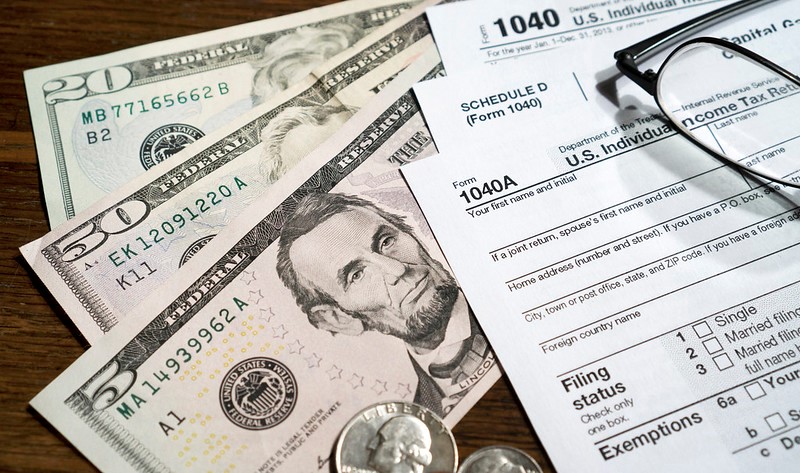
Did you know that since 2019, Colorado’s General Assembly has passed over $2.1 billion in new taxes and fees? And if you’re wondering how the General Assembly bypassed Colorado’s Taxpayer’s Bill of Rights (TABOR) to increase taxes without Coloradoans approving the increase, the answer is lawmakers labeled the increases as “fees” instead of “taxes.”
Meanwhile, inflation is hurting every American’s pocketbook. The latest official number for US inflation was 7.9 percent in February. That number was calculated before the oil spike and means March’s number will likely exceed February’s, setting another 40-year high.
Suffice it to say, the cost of living is increasing, and it has a decidedly negative impact. Indeed, The Colorado Health Foundation’s polling from last September found that 73 percent of Coloradoans viewed the cost of living as a “very” or “extremely” serious problem, and over 20 percent of Coloradoans were worried about losing their home. This year’s polling is expected to be worse.
To address the above issues, and help make Colorado a bit more affordable, Colorado Representative Kim Ransom (Republican, D-44) and Senator Jerry Sonnenberg (Republican, D-1) introduced House Bill 22-1021, “Reduce State Income Tax Rate” to the House. HB 1021 would’ve reduced state income tax rates from 4.55 percent to 4.4 percent. But here’s what happened after HB 1021’s introduction and where it stands now.

Saving Coloradoans Money
On Jan. 12, Colorado Senate and House Republicans revealed their “Commitment to Colorado” legislative package, specifically targeting affordability in Colorado. Senate Minority Leader Chris Holbert (Republican, D-30) stated, “This legislative package establishes our priorities for this session – the same priorities of most Coloradans. Our state has become unaffordable, crime is spiking, and our government schools are in absolute disarray. It’s time to think outside the box, get creative, and find real solutions for the people of Colorado who are struggling.”
HB 1021 was part of that package and, after the introduction, was assigned to the House State, Civic, Military, & Veterans Affairs committee.
Specifically, HB 1021 would’ve reduced the individual and corporate state income tax rates from 4.55 percent to 4.4 percent. While that reduction isn’t significant, for the average family with Colorado’s median household income of approximately $77,000, it translates to a savings of $115 per year. And, by Fiscal Year 2023-2024, that adds up to $420.4 million back in Coloradoans’ wallets.
Ransom and Sonnenberg stated in an opinion piece for the South Platt Sentinel, “That is money that will help taxpayers; it’s a little more in an emergency savings account; it’s a little bit more towards a college fund; it’s a little bit more towards vacation. Most importantly, it is money that belongs to the people of Colorado and they deserve to choose how to spend it.”
Postponed Indefinitely
On March 14, committee members reviewed HB 1021 and heard testimony for and against reducing state income tax rates. That lasted for less than an hour, and after final remarks, Republican committee members moved to send HB 1021 to the Committee on Appropriations. That failed on a party-line vote, with Democrats making up the majority. Then, Democrat committee members moved to postpone HB 1021 indefinitely. That passed and was again on a party-line vote, with Democrats making up the majority.
Following the defeat, Ransom released the following statement, “I’m disappointed to see that the promises Democrats made to reduce the cost of living for the people of Colorado were empty; by killing this legislation during our current financial crisis, the Majority Party reminded the people of Colorado that they prioritize partisanship above the families of Colorado.”

November is Just Around the Corner
Inflation is hurting Coloradoans, and the rising cost of living in Colorado is especially impacting lower and middle-class families. Currently, Democrats make up a majority in the House and Senate, and Colorado’s governor is a Democrat.
Republican lawmakers have tried to lower the cost of living for Coloradoans by introducing bills like HB 1021 but have been stymied by Democrats’ control. Indeed, almost all bills to increase fees and taxes are partisan, with Democrats voting in favor and Republicans voting against. Similarly, bills to save Coloradoans money on taxes and fees are partisan, with Republicans voting for and Democrats voting against. That’s important to keep in mind going into the upcoming election season.









